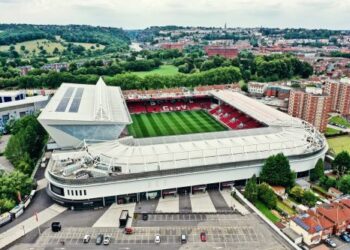From 1909 to 2025: Leeds City to Leeds United — a century of grit, glory and reinvention…..
Founded in 1908 as Leeds City and reformed as Leeds United in 1919, the club’s story reads like the city itself: industrial, resilient and fiercely proud. The interwar years delivered humble regional success, but it was after World War II that Leeds grew teeth — steady promotion battles and the consolidation of a loyal fanbase that made Elland Road a fortress.
The 1960s and 1970s heralded a golden age. Under Don Revie, Leeds United became a domestic powerhouse — hard-tackling, tactically astute and ruthlessly ambitious. League titles, cup triumphs and European nights made the club synonymous with English elite football. Revie’s legacy shaped a culture of intensity and high expectation that still echoes.
The 1980s and early 1990s brought transition. Managerial shifts, financial strains and fluctuating form tested supporters’ faith, yet the club’s identity endured. The early Premier League era saw flashes of revival but also instability that preceded the dramatic resurgence under Marcelo Bielsa in the late 2010s. Bielsa’s high-octane style rekindled global admiration, promoting youth, pressing relentlessly and restoring pride after years in the Championship.
Recent decades have been a study in contrasts: near-misses, painful relegations and electrifying comebacks. Investment, modern scouting and an emphasis on academy talent reshaped recruitment, while supporters — generations deep — sustained passion through turbulence. By 2025 Leeds United stands both humbled by history and hungry for future silverware.
As the club moves forward, the throughline remains clear: a working-class club with an uncompromising spirit. From coal-town grit to contemporary ambition, Leeds’ legacy is not merely trophies but identity — a team that dominates its city’s imagination, overbearing in belief and unbowed in pursuit of greatness. Fans hope new chapters bring sustained success and continental competitiveness.











